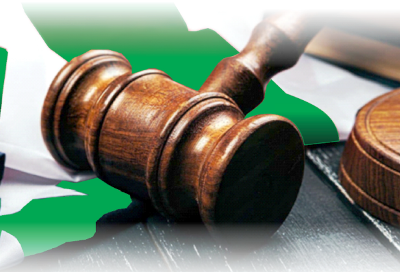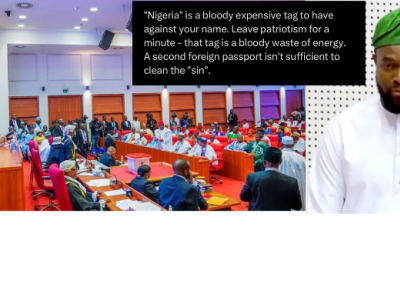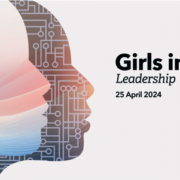In Jos, inside the hall, where the Social Media for Social Good (SMSG) conference is holding, I am pondering on one of the panel discussions on ‘Leadership and social transparency.’ I am debating the links between the discussions being moderated by one Herbert Daniel Gomagallah, an Economist; and this year’s Corruption Perceptions Index (CPI) by Transparency International (TI).
The CPI ranks 180 countries by their perceived levels of public sector corruption according to experts and business people. It uses a scale of 0 to 100, where 0 is highly corrupt and 100 is spotless.
Released earlier this year, the 2017 CPI by the global anti-corruption watchdog was shocking and bewildering not only for Nigeria but many countries particularly those in Africa. Corruption is growing. It is not shrinking. More than two-thirds of countries score below 50, with an average score of 43. Nigeria scored 28 out of a scale of 100.
It’s a leap backward from its appreciable record of 2016 when it scored 27 points out of 100 and was 136th in the ranking of countries. It’s CPI at 148th for 2017 out of 180 is a pointer to a somewhat commonplace truth that corruption is winning – the war on anti-graft appears to be receding.
This Jos SMSG panel on ‘Leadership and social transparency’ presupposes that the rising tides of corruption are a reflection of bad leadership and a correlative sense of comatose in followership. “We are challenged because we have not been able to have the right people in Power because a lot of people shy away from politics and the desire to change things,” Gomagallah writes in his ‘moderator’s notes.’
Today, the Minister of Communications, Adebayo Shittu, faces corruption allegations from his own aides in an embarrassing situation that calls for self-examination by the minister himself and for action by the man at the top of the ladder, who appointed the minister.
Leadership can influence how corruption can be fought or tamed in the public sector. But leadership cannot always decide how deeply corruption can be confronted. Often because the system is already rigged to benefit the corrupt, a leadership at the far top of the ladder becomes increasingly disconnected from the real tasks of taming corruption at the nerve-centre of where corruption thrives best in the public sector.
This is one reason to be sympathetic with Mr. President. He may have the conviction of a corruption-free Nigeria, but he must engage with people who see his conviction as whimsical wishes of an old man and nicely parry his wishes around in party sing-songs.
Only months back, the Director General of NITDA, Dr Isa Ali Ibrahim Pantami screamed a header on how civil servants across various agencies are using ICT procurements to siphon billions of naira into private pockets. Pantami is revealing the obvious. In government circle, ICT projects are ‘fantastic’ conduits to ‘fantastically’ loot government treasury and ‘fantastically’ mystify auditors over the state or lack of it of the projects.
Same projects can be budgeted for severally in as many years as possible under the guise of upgrades and then of course, there are always room for project re-assessment and re-costing to be accommodated under supplementary budgets.
Because citizens have a distanced approach to governance, they allow state officials to play lord over position of trust and weaken the power of state institutions to compel officials to be servants and not lords.
Mindful of this and desiring to put watchful dogs on ICT procurements, the NITDA is still engaged in raging battles of ensuring that ICT projects executed by Ministries, Departments and Agencies (MDAs) of the federal government must have clearance issued by the NITDA to determine the status of their execution by the office of the Auditor General of the Federation (AGF).
NITDA is fighting cartels across MDAs and daring to bark; and may be bite, fat MDA rats who have long fed well on ICT procurements as their yearly feast of larceny with an entrenched sense of entitlements.
Pity the president! He rules in the wiry Nigerian world where men beckon on men as comrades only if they understand the language of entrenched individuals’ interests over national interests. National interest is national interests only if it is served as an appetizer to the main course of self-interests.
Because NITDA desires to become a common pool for clearance of all public sector ICT projects, the wolves are in town crying foul. But inherently, NITDA also needs to reposition and strengthen its own internal capacity to truly be a government’s IT clearinghouse.
When you look at the 2017 CPI as it concerns Nigeria, remember to think of the billions sunk into ICT that have become white elephants across the country; the unwholesome regulatory dealings for which many heads of MDAs have become guests of the Economic and Financial Crimes Commission (EFCC); and the so-called ‘hush’ files on some regulators facing possible indictments over slush funds in their accounts.
Only months back, the Director General of NITDA, Dr Isa Ali Ibrahim Pantami screamed a header on how civil servants across various agencies are using ICT procurements to siphon billions of naira into private pockets.
Today, the Minister of Communications, Adebayo Shittu, faces corruption allegations from his own aides in an embarrassing situation that calls for self-examination by the minister himself and for action by the man at the top of the ladder, who appointed the minister. The war against corruption must be both symbolic and practical in a sense that warns those in office that they must come clean at all fronts.
The CPI is an index that scrutinizes perception of transparency and probity in the public sector, once there’s doubt on the perceptible quality in the character of an agent of the state in a way that may stain the government’s own image, it behooves on the government to investigate that stain and immediately address the aberration.
Fighting corruption requires the commitment of leadership but the zealotry of followership. Citizens must come to the realization that public officials are state servants not state lords. They are subject to scrutiny and are not above board. Citizens have the obligation to interrogate statements and initiatives by heads of MDAs. Citizens have the duty to seek answers over doubtful projects and they the right to point their fingers at state officials to demand explanation.
Unfortunately, because citizens have a distanced approach to governance, they allow state officials to play lord over position of trust and weaken the power of state institutions to compel officials to be servants and not lords.
A government appointee that enters the public service with less than N30, 000 in his account suddenly becomes a real estate owner with billions in his accounts. Yet, the system encourages the citizens to hail him as an achiever with multiple awards.
The answer to why our corruption index will worsen is in the manner in which citizens have refused to believe that they have role to play in taming corruption. They make the man at the top of the ladder a lonely driver in the battle against corruption.































